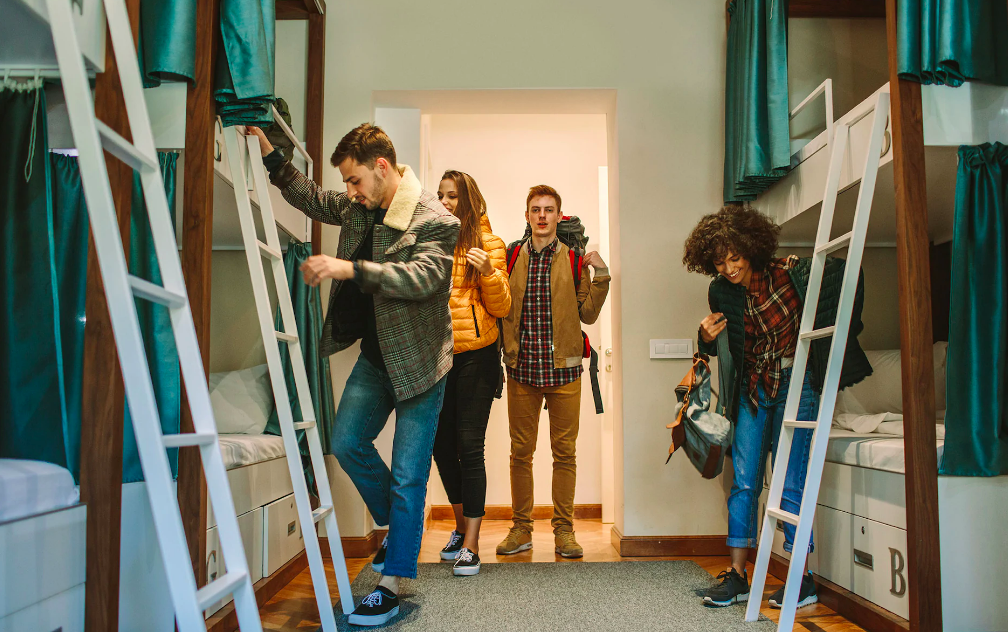Trying to keep up to date with industry news during COVID-19? We give you a rundown of what’s going on and offer our insight.
BOOKINGS SURGE SPARKS HOPE FOR HOSTEL INDUSTRY

Hostels around the world face months of hardship as a result of social distancing and quarantine measures however bookings figures from Generator could spark hope for many.
While CEO Alastair Thomann warns getting occupancy back to 40-45% could take another four to five months, Generator’s bookings for the first quarter of 2021 are stronger than they were last year. Booking trends suggest that travellers are using the New Year as a marker for resuming international travel.
As uncertainty lingers on for hostels – especially those made up with a high number of shared dorm rooms – many are optimistic that the months of lockdown are sparking an urge to travel that could help many hostels balance their books for the year.
James Blake, chief executive of the Youth Hostel Association, said: “The industry will continue to be hard hit – I certainly can’t see dorm rooms returning for the foreseeable future. I think we’ve got to be realistic about the fact that things are not going to bounce back to normal.
“But when we come out of the other end of lockdown, I think people will be desperate to get out of their houses and we want to be able to help them do that.”
Thomann is also optimistic about Generator’s future: “Here, we’re dealing with a segment of travellers that have traditionally come back more quickly than anyone else,” he said. “The 18- to 28-year-olds are ready. They feel they’re indestructible and are raring to go.”
FOCUS ON DOMESTIC TRAVEL OR RISK LOSING OUT ON BOOKINGS

Our co-founders ran a webinar to Europe’s Famous Hostels’ members on how to capture domestic demand to boost bookings post COVID-19 last week.
In this current period, the idea of a staycation has taken on a whole new significance as domestic travel will undoubtedly be the quickest market to recover following the COVID-19 crisis.
We have already seen this taking effect in China, where 115m people made domestic tourism drips during the May Day Break.
Another report released by Cabinbookers in the UK revealed that 90% of holidaymakers are planning to take a domestic holiday once the lockdown restrictions are lifted.
To hear about our future webinars and receive actionable information on the strategies we are recommending to target domestic travellers, sign up to our email newsletter.
DIGITAL NOMADS STAYING THE COURSE DURING COVID-19

Digital nomads around the world are prepared to wait the pandemic out, according to co-living and co-working network, Outsite.
Although it was forced to close a few locations, Outsite founder and CEO Emmanuel Guisset says it ultimately made the decision to keep most of its spaces open, despite stay-at-home orders and social distancing requests.
He said: “We thought about shutting down everything – that was definitely a scenario – but we’re serving a community. They didn’t want that. They actually wanted to stay.”
Prior to COVID-19, remote working was already a growing market, with many hotels and hostels adding in co-working spaces and facilities to target this demographic.
While initially it was thought that the pandemic could bring an end to the ‘on the move’ worker, for many it could have the opposite effect.
As the majority of offices around the world have adopted a working from home model during the pandemic – it is likely we will see a rise in people preferring to work remotely.
Targeting this demographic by promoting private spaces with fast free wi-fi could be hugely beneficial for your brand as people look for a new environment to stay in to encourage their productivity.
SELINA SECURE MILLIONS IN FUNDING TO GET THROUGH CRISIS

Selina has reportedly raised around $60million in extra funding to help the brand get through the COVID-19 crisis.
Providing travellers with co-working spaces, hostel-style lodging, and activities, Selina has grown to be one of the most significant hostel industry leaders over the past few years. The brand has grown exponentially over the past year, going from running 46 properties in a dozen countries to having more than 110 leases, with close to 70 open properties.
Commenting on the recent funding, co-founder and CEO Rafael Museri said: “We have the funds now to get through the crisis and to be strategic enough to get stronger.”
While business-as-usual seems unlikely for a while in the travel industry, Museri has noted that the company’s main emphasis will remain in what he called the “global remote hostel” category. He is also optimistic about the location-independent working part of Selina’s concept.
He said: “Millions of people were forced into remote working, and some of them fell in love with this concept. Many, many companies now realize that, without a fancy office, you can get a lot done.”
As a remote agency ourselves, we couldn’t agree more.
Join our community and sign up to our mailing list to receive more of our marketing insight and advice on how to restrategise and adapt due to COVID-19.



